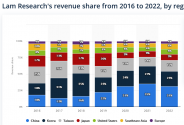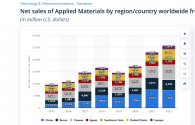I honestly think that speculating about what might get imposed isn't really helpful when they are so far away.
Frankly, Chinese semiconductor market is so large that just capturing domestic market is sufficient to make any Chinese firms competitive.
I agree, I'm not trying to talk about what might get imposed in future -- but rather trying to convey to people that there are likely still fairly extensive tools the US could use in future to apply pressure, and to not be surprised if or when it happens.
As for the domestic market, I do agree in principle that the ability to capture it would make Chinese firms competitive... eventually.
However, there also is a bit of a clock that they are competing against --- which is that the Chinese domestic industry should aim to be sufficiently competitive (at minimum) with foreign semiconductor companies such that Chinese domestic technology firms, industries, in general (including emerging applications like AI) do not experience too significant a setback such that it results in an overall "technology gap" that is difficult to claw back even when China's domestic semiconductor industry is sufficiently competitive in technology.
That is to say, I think everyone agrees that Chinese semiconductor firms will eventually become competitive -- the question is when that will occur and what that means for their customers in various industries and what that means on a national level in terms of competitiveness and productivity.
(That is also somewhat I am talking about in regards to the Chinese semiconductor industry being in "survival mode" wrt supplying national industries)



